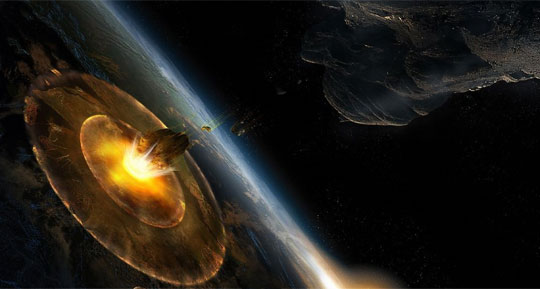
To observe changes to the brain that may occur en route to the Red Planet, researchers exposed mice to charged particles like those found in galactic cosmic rays. And unfortunately, it turns out exposure to space radiation may put Mars-bound astronauts at risk for cognitive problems, like losing the ability to problem-solve. The work was published in Science Advances this week.
Without Earth’s protective magnetosphere, highly energetic charged particles from galactic cosmic rays — the remnants of past supernova explosions — will no doubt bombard and penetrate any spacecraft that’s headed to Mars. To find out what happens to the brain during such an interplanetary voyage, a team led by Charles Limoli from the University of California, Irvine, put mice in the path of a single beam of high-energy radiation — fully ionized oxygen and titanium, specifically — at the NASA Space Radiation Laboratory at the Brookhaven National Laboratory. This is one of the most dangerous kinds of space radiation you’d expect over a 860-day journey, Popular Mechanics explains. The team also exposed the mice to a radiation dose that’s equivalent to about six trips.
The mice were genetically engineered to have glowing neurons so the team was able to see changes in their brains. Six weeks after their radiation exposure, the irradiated mice had fewer dendritic synapses — the branches protruding from neurons that transmit electrochemical signals. Charged particles broke those branches right off. The loss of dendritic branches has previously been linked to Alzheimer’s.
To see how this disruption in signal transmission affected cognition, the team conducted learning and memory tests on the mice back at their lab. They placed the rodents in a box filled with toys, and then after a while, they swapped out the toys or moved them around. Compared with control mice, the astronaut stand-in mice were not as curious in new, unexpected situations, and they became more easily confused.
In humans, these neuronal changes might impair spatial reasoning and the ability to recall information. “This is not positive news for astronauts deployed on a two- to three-year round trip to Mars,” Limoli says in a news release. “Performance decrements, memory deficits, and loss of awareness and focus during spaceflight may affect mission-critical activities, and exposure to these particles may have long-term adverse consequences to cognition throughout life.” However, this research doesn’t mean manned missions to Mars are impossible. Increased shielding on spacecrafts and helmets could protect astronaut brains, and Limoli and other researchers are working on drug compounds that could scavenge free radicals in order to protect neurotransmission.
Via IFL Science






